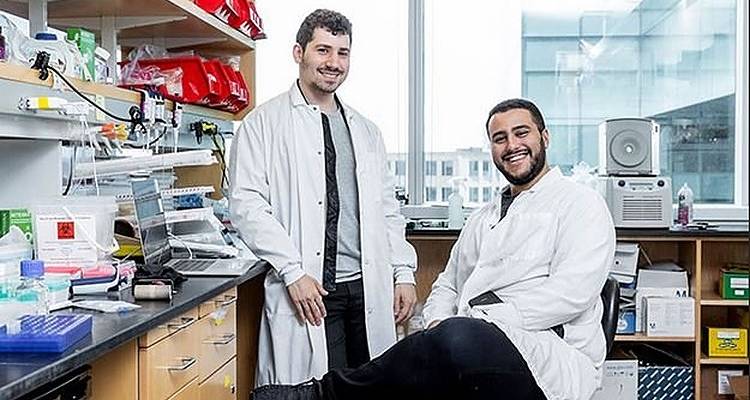Two experts at MIT – an Arab and a Jew – are working together on some fancy technology to make faster, reliable coronavirus testing.
By Yakir Benzion, United With Israel
University research labs are populated with some of the brightest minds, and in the age of the coronavirus pandemic the days are long and the tension high as scientists and engineers work on solutions to the myriad of challenges facing the world.
Two experts at MIT’s McGovern Institute for Brain Research – Omar Abudayyeh and Jonathan Gootenberg – are working on a new method for faster, reliable COVID-19 testing critical for help stem the spread of the pandemic.
Both born in America, the two are an example of coexistence and cooperation, working together for five years in their “abugootlab” – the Abudayyeh-Gootenberg Lab at MIT where their normal work involves developing new tools to treat genetic disease via gene therapy as well as studying the biology of aging.
The duo realized that the same CRISPR technology they’ve been using might also hold the key to rapidly diagnose COVID-19 and help stop its spread.
Just what is “CRISPR”? It stands for Clustered Regularly Interspaced Short Palindromic Repeats, and for the non-scientists among us this can be explained as a way of finding a specific bit of DNA inside a cell. Once you do that, you can “edit,” or change that piece of DNA.
Abudayyeh and Gootenberg explain that there are three main types of virus testing for COVID-19: detection of nucleic acid, detection of viral proteins, and serology tests to detect if the body has antibodies against the virus.
The last two tests are problematic, but the nucleic acid tests are the ones we see on TV, where a swab is taken from the nose. However, those tests require complex and expensive equipment along with skilled personnel in an advanced laboratory.
Using their CRISPR technology, Gootenberg and Abudayyeh say they developed an alternative nucleic acid test that has high sensitivity, low cost and no need for a lab. It uses a paper strip similar to a pregnancy test, and the results take less than an hour.
“We hope that this test will significantly lower the barrier for accurate diagnosis and provide another approach for COVID-19 surveillance,” they said.
Last week, they received FDA emergency use authorization for their CRISPR SARS-CoV-2 Rapid Diagnostic and are already out with a faster and simpler version known as STOPCovid.
Their vision for this test is to make it easy to use in point of care settings. They are hoping to develop a device through which the STOPCovid test can be run and the results scanned via a mobile phone app, Synthego.com reported.
